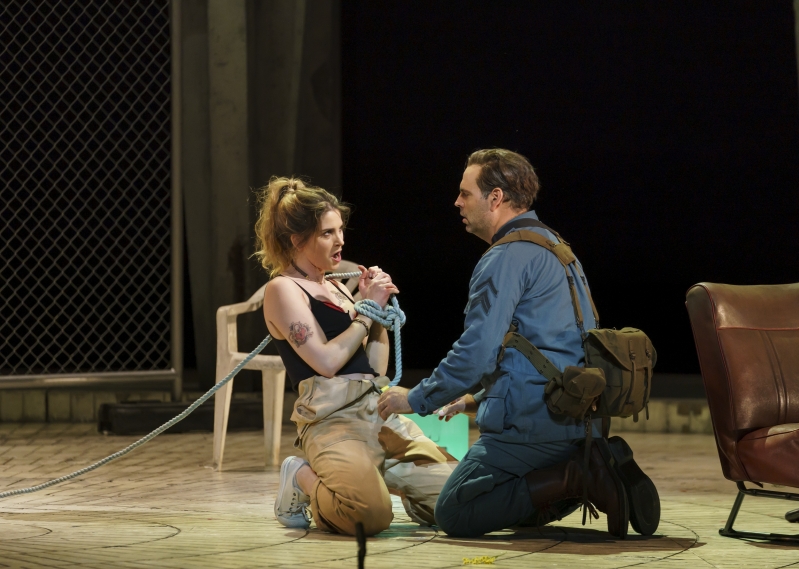
Opera is renowned for its violent treatment of women characters; this more often than not leads to the protagonist presenting as a tragic heroine, the female lead who ‘suffers from a tragic flaw that eventually causes her downfall.’ Carmen is not merely a one-dimensional character and thus, in a very realistic way, has imperfections and makes mistakes. Out of all of these faults her stubbornness is the one that ultimately leads to her downfall. However, it is also this flaw that encourages her to be viewed as a feminist icon; her refusal to bend to the constraints of social expectation is what frees her and simultaneously tears her down.
The Oxford Dictionary's definition of feminism is, ‘The advocacy of women's rights on the ground of the equality of the sexes,’ Carmen is often criticised for her treatment of other women in the opera as being un-harmonious with feminist values. This is clearly demonstrated in the way she fights viciously with her co-worker, but what critics seem to forget is that she did not betray her colleague and tell the authorities what happened; taking the brunt of the responsibility upon herself.

Carmen is sexually, politically and socially independent; we see this through her supporting herself financially; possibly the only working class female character in opera to do so. In WNO’s latest production we see her rebelling against the regime fighting for independence, a natural born leader in one scene a flag stamped with liberté drops down behind her framing her perfectly as she raises her gun in the air. Lastly, socially liberated through her positon within the gypsy community, she is able to freely take, ‘for a country the universe and for law your own will.
Carmen’s sexual freedom is what infuriated the original audience in 1875; her rejection of a man in turn for another is seen as unforgivable, although, through the lens of feminism today the double standards of male and female promiscuity are clearly evident. She does not mould to José’s wishes and this is why she has to die; murdered in a jealous rage as he sees only what is owed to him and what he believes he is entitled too.

But then the tragic heroine always dies, and this is what Carmen Director Jo Davies questions in her introduction, ‘whether Bizet’s ending would be the same, or any different were he writing it today?’ Fierce and brave until the last, even in her language, ‘I am not a woman to tremble before him,’ Carmen redeems herself in refusing to become the imploring, begging victim; defiantly un-afraid of death. There are no come back arias for Carmen - when she dies she dies as she lived her life; boldly, truthfully and without weeping.
You can argue whether Carmen is a feminist icon or a tragic heroine but ultimately she is both for in a patriarchal society which is often seen to punish the woman who wants to go her own way, unless the world changes; how can our heroines?



